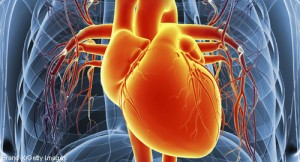 Individuals with systemic lupus erythematosus (SLE) and other inflammatory diseases are at increased risk of cardiovascular disease. This risk seems to stem from a dysfunction in endothelial repair mechanisms. More specifically, individuals with SLE have a decreased number of myeloid angiogenic cells (MACs), which are known to be important for vascular repair, therefore implicating these cells in the documented endothelial dysfunction. Myeloid cells are known to express functional vitamin D receptors and respond in vitro to the active form of vitamin D (calcitriol). Taken together, the observations have led investigators to wonder whether vitamin D may improve cardiovascular risk in patients with SLE. John A. Reynolds, MRCP, PhD, a clinical lecturer at the University of Manchester in the U.K., and colleagues investigated this question and published their results online on March 1 in Scientific Reports.1
Individuals with systemic lupus erythematosus (SLE) and other inflammatory diseases are at increased risk of cardiovascular disease. This risk seems to stem from a dysfunction in endothelial repair mechanisms. More specifically, individuals with SLE have a decreased number of myeloid angiogenic cells (MACs), which are known to be important for vascular repair, therefore implicating these cells in the documented endothelial dysfunction. Myeloid cells are known to express functional vitamin D receptors and respond in vitro to the active form of vitamin D (calcitriol). Taken together, the observations have led investigators to wonder whether vitamin D may improve cardiovascular risk in patients with SLE. John A. Reynolds, MRCP, PhD, a clinical lecturer at the University of Manchester in the U.K., and colleagues investigated this question and published their results online on March 1 in Scientific Reports.1
The researchers began by isolating and characterizing MACs from blood samples taken from patients with SLE who were vitamin D deficient (25(OH)D <20 ng/mL), patients with SLE who were vitamin D sufficient and healthy controls. They found the MACs from patients with SLE presented with a global impairment, including decreased migration and angiogenic capacity.
“Importantly, this study shows that SLE MACs demonstrate impaired migratory capacity towards SDF-1α [stromal cell-derived factor 1α] in vitro, which may contribute to the impaired endothelial repair reported in this patient group,” write the authors in their discussion.
Additionally, they found when MACs from patients with SLE who were vitamin D deficient were cultured with calcitriol, the MACs expanded. In contrast, MACs from patients with SLE who were vitamin D sufficient did not demonstrate a response to calcitriol. The investigators wanted to examine the response more carefully, but were concerned about the confounding potential of the MAC heterogeneity seen in the SLE patient population. Thus, they established an in vitro model for the study of SLE MACs.
The in vitro model involved first isolating MACs from healthy control individuals and then treating the MACs with interferon (IFN) α2b. This treatment replicated the SLE MAC phenotype in vitro and provided an opportunity to investigate the direct effects of calcitriol on MACs.
“The angiogenic capacity of MACs is fundamental to their role in endothelial repair and we identified a number of pro- and anti-angiogenic factors differentially regulated by calcitriol in PBMCs [peripheral blood mononuclear cells],” write the authors. One of these was the interferon gamma-induced chemokine CXCL-10.
Because the investigators focused their efforts on their in vitro IFN model, they could not conclude with any certainty that their observations could be generalized to the SLE patient population. To address this limitation, they evaluated the effect of vitamin D in patients with SLE. The researchers treated vitamin D-deficient patients with SLE with cholecalciferol (400,000 IU, followed by 20,000 IU weekly for 12 weeks). They documented an improvement in endothelial function that correlated with the increase in serum 25(OH)D concentrations. The improvement in endothelial function was independent of disease activity.
The researchers, thus, concluded that treatment with vitamin D may be able to modify endothelial repair mechanisms in patients with SLE, thereby improving endothelial function and decreasing cardiovascular risk.
Lara C. Pullen, PhD, is a medical writer based in the Chicago area.
References
- Reynolds JA, Haque S, Williamson K, et al. Vitamin D improves endothelial dysfunction and restores myeloid angiogenic cell function via reduced CXCL-10 expression in systemic lupus erythematosus. Sci Rep. 2016 Mar 1;6:22341. doi: 10.1038/srep22341.

